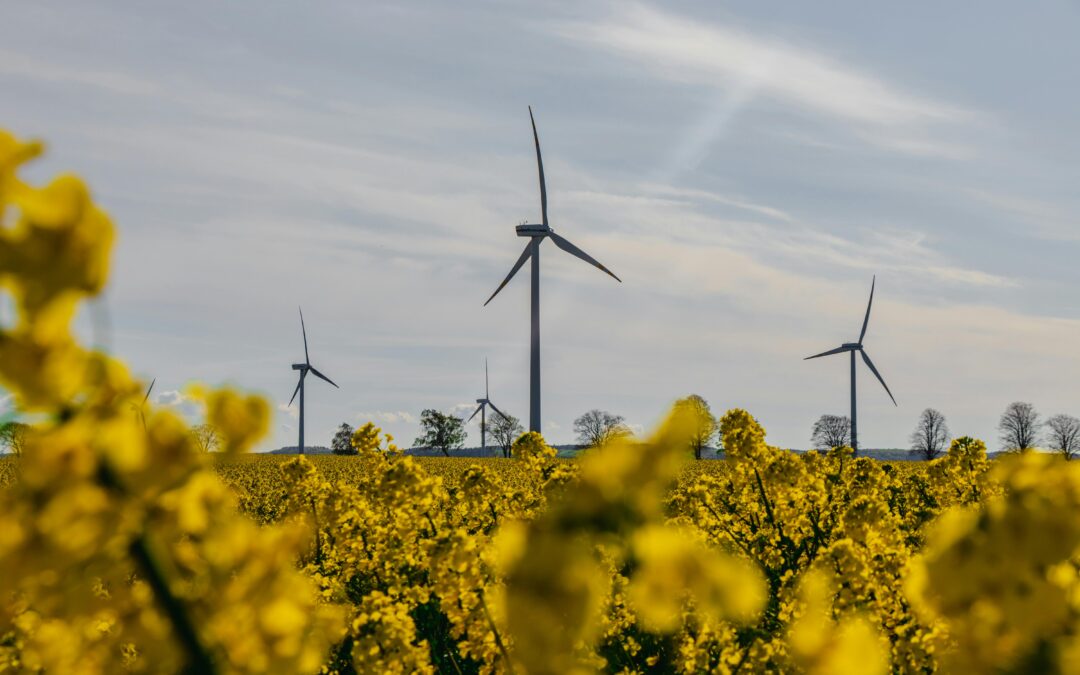As the nights draw in, so does that familiar dread…the energy bill. But what if, instead of waiting for prices to rise, your street teamed up to take control of your power and cut costs by up to 30%?
That’s exactly what’s happening across the UK, thanks to Energy Local, a non-profit making national headlines in The Guardian. Their idea is brilliantly simple: neighbours form “energy clubs” that buy renewable electricity directly from local wind or solar projects which is cheaper, fairer and greener.
Windy Fields to Warm Homes
In Bridport, Dorset, a farmer’s single wind turbine now powers nearly 60 local homes. Residents track when the wind’s blowing strongest and time their washing or cooking to those hours… saving between 10% and 25% on their bills.
“I check the app to see how fast the wind’s going before turning on my washing machine,” says club member Malcolm Drew. “It’s small changes, but it adds up.”
It’s not a gimmick but it’s community cooperation with real savings.
How It Works (and Why It’s Brilliant)
Energy Local uses smart meter technology to match household energy use, with local renewable generation. When the sun shines or the wind blows, members pay less. When it doesn’t, they switch to normal rates.
It’s a win-win:
- Households pay less.
- Local green projects earn more than they would from big energy suppliers.
Money stays in the community instead of flowing to corporate giants.
Across Great Britain, 36 energy clubs are already active, from Scotland to Devon and the model is spreading fast.
Why This Matters for the Social Economy
This is the social economy in motion: practical innovation solving big problems. It’s not charity, it’s community enterprise.
According to Social Enterprise UK, the UK now has 131,000 social enterprises, contributing £78 billion to the economy and employing 2.3 million people. These businesses prove that profit and purpose can thrive together and Energy Local is proof the model works.
At a time when nearly 13% of UK households face fuel poverty (ONS, 2024), projects like this bring energy justice and climate action together.
What This Means for Cities Like Birmingham
Imagine if every neighbourhood in Birmingham or any UK city, could form its own club to cut bills and carbon. The impact on social value, inclusion and local resilience would be huge.
That’s where iSE steps in. As a social enterprise hub, iSE helps connect innovators, funders and local authorities to scale these kinds of models. From community wealth building to sustainable infrastructure, iSE’s mission is to help the social economy power up real-world change.
“Projects like Energy Local prove that community energy isn’t just good for the planet but it’s good for people, pockets and policy,” – iSE Team
The Future Is Local
Energy Local’s founder, Dr Mary Gillie, sums it up best: “We can’t replace the national grid, but we can make it smarter, fairer and cleaner.”
And that’s the real takeaway, the future of energy (and maybe business itself) is local, cooperative and community-driven.
So next time your bill lands, imagine this: instead of frustration, you feel pride knowing your power supports your neighbours, your planet and your wallet.
That’s the social economy at work and it’s just getting started.
Quick Facts:
- Average household bill: £1,755/year…Energy Local members save up to 30%.
- 36 Energy Clubs now active in Great Britain.
- UK social enterprises contribute £78 billion annually to the economy.
- 13% of UK households live in fuel poverty.
2.3 million people employed in the social enterprise sector.

